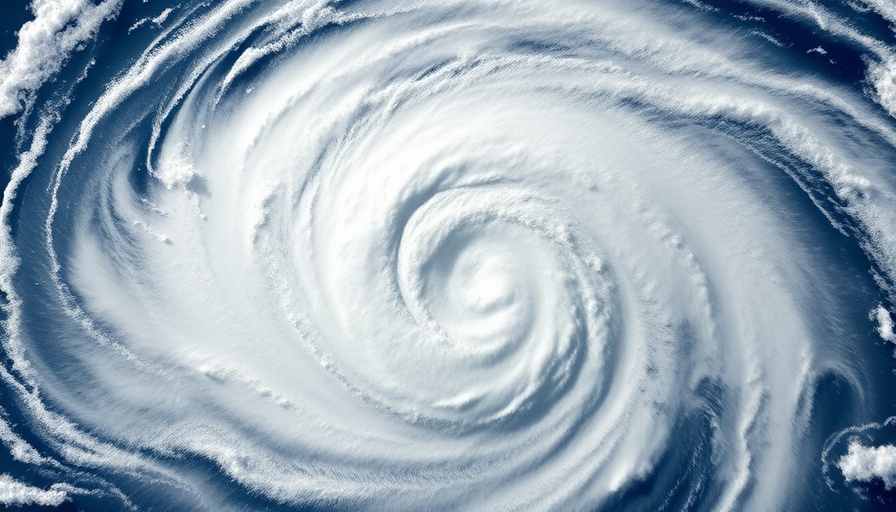
Hurricane Season 2025: What Can We Expect?
The 2025 Atlantic hurricane season is upon us, and forecasters are bracing for an active season. The National Oceanic and Atmospheric Administration (NOAA) anticipates between 13 to 19 named storms this year alone, potentially surpassing the average of 14 storms recorded from 1991 to 2020. With warmer ocean temperatures exacerbating hurricane activity, communities across the U.S. must prepare for severe weather challenges that extend beyond traditional coastlines.
The Expanding Impact of Hurricanes
As climates shift and oceans warm, the geographic footprint of hurricane impacts has widened significantly. A recent report by Cotality, a firm specializing in real estate analytics, highlighted that approximately 33.1 million residential units nationwide face threats from hurricane-force winds, with reconstruction costs projected at an alarming $11.7 trillion. This year's storm surge could endanger more than 6.4 million homes, totaling an estimated $2.2 trillion in potential flood damage.
“Our data shows that the coastline is evolving, with the impacts of hurricanes extending not only further — both in cost and distance — but on a more consistent basis,” explains Maiclaire Bolton-Smith, vice president of insurance product marketing at Cotality. The consistent rise of risk extends concerns past shorelines and into areas previously deemed safe.
Impacts on Communities and Homeowners
It's not just coastal towns that need to prepare for hurricanes anymore. Inland communities previously unaccustomed to such severe weather are feeling the consequences, as highlighted by the tragic flooding of rural North Carolina during Hurricane Helene last year. Michael Brennan, director of NOAA’s National Hurricane Center, now emphasizes the importance of ensuring that inland communities understand the risks associated with heavy rains and flooding.
“It’s critical to get that message of preparedness across to areas that might not have the infrastructure or protocols in place,” says Brennan. Increasingly, inland flooding has become a leading cause of fatalities during storm events, underscoring the urgent need for comprehensive awareness and preparedness across the nation.
The Financial Aftermath: Rising Costs and Insurance Challenges
The potential for disasters on this scale brings financial consequences that resonate deeply with homeowners and businesses. In addition to the risk of property damage, those living in hurricane-prone markets also face rapidly rising insurance premiums that can make affordability increasingly challenging. Tom Larsen, Cotality’s assistant vice president, notes that many consumers might find themselves priced out of neighborhoods that were once considered low-risk.
The double whammy of rising insurance costs and elevated mortgage rates can create a perfect storm of financial difficulties for many. This added burden not only jeopardizes homeowners but potentially hinders recovery efforts following a hurricane.
Preparing for the Future: Steps We Can Take
As we face the daunting forecast of this hurricane season, public and private sectors must join forces to enhance preparedness and resilience. Increased funding for infrastructure improvements, updated zoning laws, and community education initiatives can offer critical support to those at risk.
Furthermore, collaboration between federal, state, and local governments is essential. Clear communication about risks, resources, and recovery efforts empowers communities to protect themselves effectively. Residents should take proactive steps: secure their homes, understand their insurance policies, and participate in local preparedness efforts.
Conclusion: Informing and Empowering Communities
As the 2025 hurricane season unfolds, the task ahead is not solely about facing storms, but about fostering a culture of preparedness that reaches every corner of the United States. Ensuring that individuals, regardless of their geographical location, receive critical information and resources will save lives and homes. Knowledge is power, and as we enter this challenging time, let’s ensure we're all ready to weather the storm.
 Add Row
Add Row  Add
Add 



Write A Comment